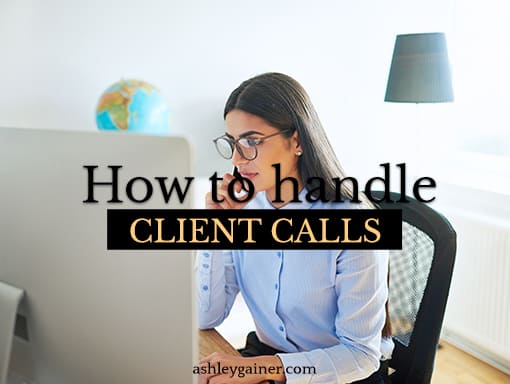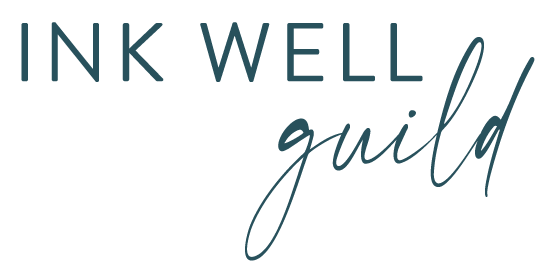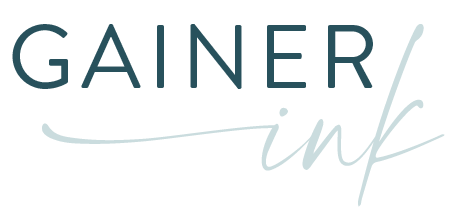Most newer freelance writers find it intimidating to get on the phone with clients. Well, good news and bad news: you don’t have to get on the phone for every client… BUT, there will be times when you’ll need to get on the phone if you want to get the gig.
Client calls have a lot of benefits. This post details why calls are a good idea, goes over some pointers for conducting your calls, and shows how to set boundaries around the whole “availability” thing.
Benefits of client calls
A MAJOR benefit of getting on a call is that you build a sense of rapport and you can prove to the prospect or client that you’re the real deal. You show up, you’re on time, and you can speak in full sentences. You’re not a bot.
Calls made before landing a client are called “discovery calls.” These are the most nerve-inducing as you don’t yet have the contract and probably don’t know the person. But you can do it!
You can use the discovery call to answer any questions the client has, and overcome any objections they have about hiring you (that’s fancy marketer speak for clarifying your qualifications, abilities, and value). You can ask questions about the scope of the project before finalizing your quote for them.
Take control from the beginning of the call. After the “Hi, how are yous” are exchanged, you want to get the focus on work. Get them to tell you what they’re looking for. Then you can decide if the project is for you. If it is, you can start talking about what experience you have that makes you a good fit for the project. If it’s not for you, you can let them know that you’re not a good fit.
Search for templates on the internet for more details about what to ask in your discovery calls. In the future I’m planning to put together a course on this, but that won’t be until 2021.
Calls made after landing the client are an efficient way to get the information you need, get YOUR questions answered, hear the client’s voice, and make sure everyone’s on the same page about the work you’re doing. If you’re ghostwriting for someone, it’s a great way to get a sense of their speech patterns, idioms, etc.
Boundaries for calls with clients
This is your business and you run it however you want. You don’t HAVE to get on a call if you absolutely can’t, but you might be saying no to opportunities you’d otherwise get. Likewise, you can set parameters around how often you’ll get on a call, and how long they will last.
For example, I have to rearrange my schedule if I take a call. I have to schedule it, because I have to find childcare. You may be able to be more flexible.
You don’t have to schedule a call for every client, but some clients will need it. Many clients are happy to communicate via email. The more expensive or more personal the work is, such as a book, the more likely you’ll need to get on the phone or Zoom. The trust factor is higher for these projects.
I advise not charging clients for calls. It looks strange on an invoice. Instead, I fold any anticipated call time into my fees. I also don’t get on calls very much with clients–not 5 minutes here and there, but only a longer, necessary session.
Tips for making getting on the phone work
Practice so you’re less afraid. This is a skill. That’s good news, because it means you can learn it. It’s not something you’re either born with or not. If you’re intimidated right now, it’s probably because you haven’t done it before or you’ve tried it and didn’t like it. But you can learn how to conduct client calls effectively in a way you feel good about. Role play them with a friend.
Set boundaries around when and how often you’ll get on calls. If you are at your kid’s swim practice on Tuesday afternoons, then you can opt to not take client calls on Tuesday afternoons.
Don’t give out your personal number. You can meet on Zoom or something similar. You can also use Google Voice. Give that number to clients, and have it forwarded to your phone.
Don’t break your neck to take a call (unless it’s an emergency, though there aren’t often copy emergencies). Just because a client wants to talk to you in ten minutes doesn’t mean that you have to talk to them in ten minutes. You are allowed to say “That doesn’t work for me. Here’s when I’m available…”
Questions?
If you have more questions, you can always post them in my free Facebook group, The Ink Well Guild with Ashley Gainer. It’s a fun conversation in the Facebook group.
I love these client call questions specifically because it’s an area that feels very scary to a lot of people and it doesn’t have to be scary. Maybe you just need a little bit of guidance and a little bit of practice.
If you’re in my Copy Confidential course, you can check out bonuses that I have in there for you about conducting client calls.
If you’re not in the course, I want you to go to copyconfidential.com and check it out. This is my new course on how to write anything for any client. It’s really robust. We talk about the major writing skills that you’re going to need for both copywriting and content writing. And I’m also including 12 modules that go in depth into 12 different types of content that you want to write. Plus, the bonuses on conducting client calls!





